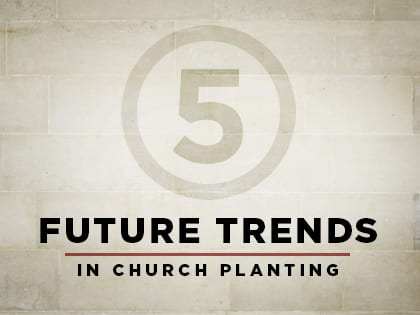There are two particular reasons for this. First, many denominations and networks embrace more of a shotgun approach to dispersing funds. While a shotgun makes a large impact, in some cases the impact doesn’t go as deep. As a result, many church planters are supported, but are in need of having additional support. And if they are not able to raise the additional support that is needed, they are left with the only alternative—getting a job.
Second, in some cases, due to the difficulty of the context, many church plants struggle to become self-sufficient years into existence. I have said before that if a church cannot become self-sufficient in at least five years then a bivocational strategy is almost certainly the best approach.
To help this trend and aid future church planters for bivocational tentmaking, I would love to see more colleges and seminaries have educational tracks that equip potential church planters with a theological and missiological foundation as well as a vocational platform.
And, one small caution—we can’t do bivocational church planting and expect the pastors to act like the vocational ones. Training will need to be online, relationships maintained in new ways, and more.
5. Becoming More Diverse
The North American racial and ethnic landscape has dramatically changed over the last few decades. The influx of immigrants and their migration to North American cities has led to and will continue to spur the need for church-planting efforts to embrace and enact diversity—especially for a church-planting effort to be effective in urban and diverse settings.
Some church-planting networks have been created to champion multiethnic church planting and development, including Rebuild and Kainos, while existing networks, like Acts 29, make becoming a “radically diverse crowd” a core value. We will continue to see a rise in more multiracial, multicultural and multiethnic church plants in the coming years.
The only caution I will note comes from Derwin Gray, a multicultural church planter himself, who worries leaders may have a tendency to support diversity for pragmatic rather than theological reasons. As a result, Derwin asserts, “We shouldn’t long for racial [or any form of] diversity—we should long for the proclamation of Jesus, which creates ethnic diversity. The Apostle Paul didn’t start one church for Jews and one church for Gentiles in the New Testament. The Gospel brought people together.”
Only a gospel-centeredness with a missional posture will create authentic, God-glorifying diversity. We must keep in mind diversity isn’t the goal of the church, but a manifestation within a church striving towards its goal. (For more on diversity in the church, read “Segregation and the Church: From Where We’ve Come.”)
Have you seen these trends in church planting as well? What other shifts have you seen taking place?
Ed Stetzer holds the Billy Graham distinguished chair of church, mission and evangelism at Wheaton College and the Wheaton Grad School, where he also oversees the Billy Graham Center for Evangelism.

